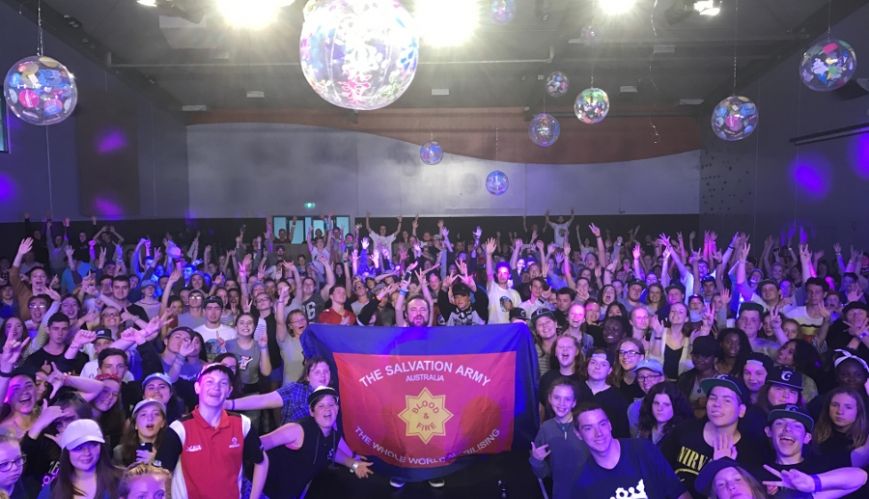Generation 'Social Justice'

Generation 'Social Justice'
6 June 2018
Salvation Army young people united under the Whole World Mobilising Flag.
As a teenager growing up in the Salvation Army in Sydney, I was surrounded by friends.
My corps had a large group of young people my age. Beyond this, a number of my closest friends were people I had met at music camps and youth events. We were engaged in our respective corps; we were consistently told that we were “the future of The Salvation Army”, and we believed it.
Fast-forward a decade or two, and when I look around my corps on a Sunday, and indeed at the wider Army in Australia,
I see few, if any, people my age.
Some have moved to other corps, some have geographically relocated, and some were specifically called to other denominations, but many have either chosen to go to other churches because they weren’t “getting what they needed” from the Army, or have stopped attending church altogether.
In talking with Salvationist friends in other countries, I understand it is a phenomenon that is not unique to Australia. Young adults are disengaging from The Salvation Army. We see pockets that challenge this, and we praise God for those places in which our young adults are thriving, but we must also ask, will the young adults of today still be engaged with the Salvation Army in 10 or 20 years’ time?
There are numerous reasons behind a person’s decision to leave a denomination, and we must learn the many, varied and multifaceted lessons from the past. However, my intention here is not for us to dwell on our losses. I believe we are on the cusp of an exciting new era for young adults The Salvation Army.
As generations pass, and each one is given a new name (Generation X, Y, Z, Baby Boomers, Millennials, etc.), generalisations are made about each. While not every person fits into these summations, they are often backed by solid social research. One such form of research is that which sums up today’s young adults.
One of the defining factors of those who are now in the young adult age bracket (approximately 18-25 years old) is that they are more socially aware than previous generations (Contiki Youth Evolution Research McCrindle Research, March 2017). They care about issues such as climate change, gender equality and racism, and they’re well aware of the issues that society is facing.
This generation wants to engage with people around them. They care about social justice issues, and are prepared to advocate for them. They care when someone is doing it tough, and are willing to give their time and resources to see hardship reduced.
Sound familiar? The very things that this generation cares about are the things that The Salvation Army cares about. We are a social justice movement – an arm of the wider Christian Church which has embedded in our very being a passion for those whom society has left behind. “Working for justice” is an element of our mission that has never dropped off, and is only strengthened by its inclusion as one of our new mission intentions.
In 2018 and beyond, The Salvation Army is presented with a unique opportunity. We have the chance to provide for today’s young adults (both those with a faith and those without) ways in which to engage with the world around them – opportunities to engage with social justice.
For the most part, we don’t have to convince them to care about social issues, or to want to engage. They already do. We simply need to provide the space for them to join in.
For decades, we have questioned what will “keep” or “attract” young adults within/to The Salvation Army. We have looked to other denominations and exclaimed, “perhaps we should do it that way!” Yes, we must learn from others, but we must also own who we are–a body of believers that recognises the importance of social issues and understands that God cares for the whole person.
We must take hold of this opportunity, providing the young adults within our corps, and the young adults within our communities, with opportunities to serve, to be innovative in mission and to learn how faith can and must interact with social issues. We must teach them how to look at issues through a theologically informed lens, so that they can teach us how the world is changing.
Let’s take hold of the opportunity we have to engage this generation of young adults, so that in 10 and 20 years’ time we are not asking how we missed it, but are thanking God for providing new troops for his Army.
Casey O’Brien Machado is a social justice coordinator with The Salvation Army.